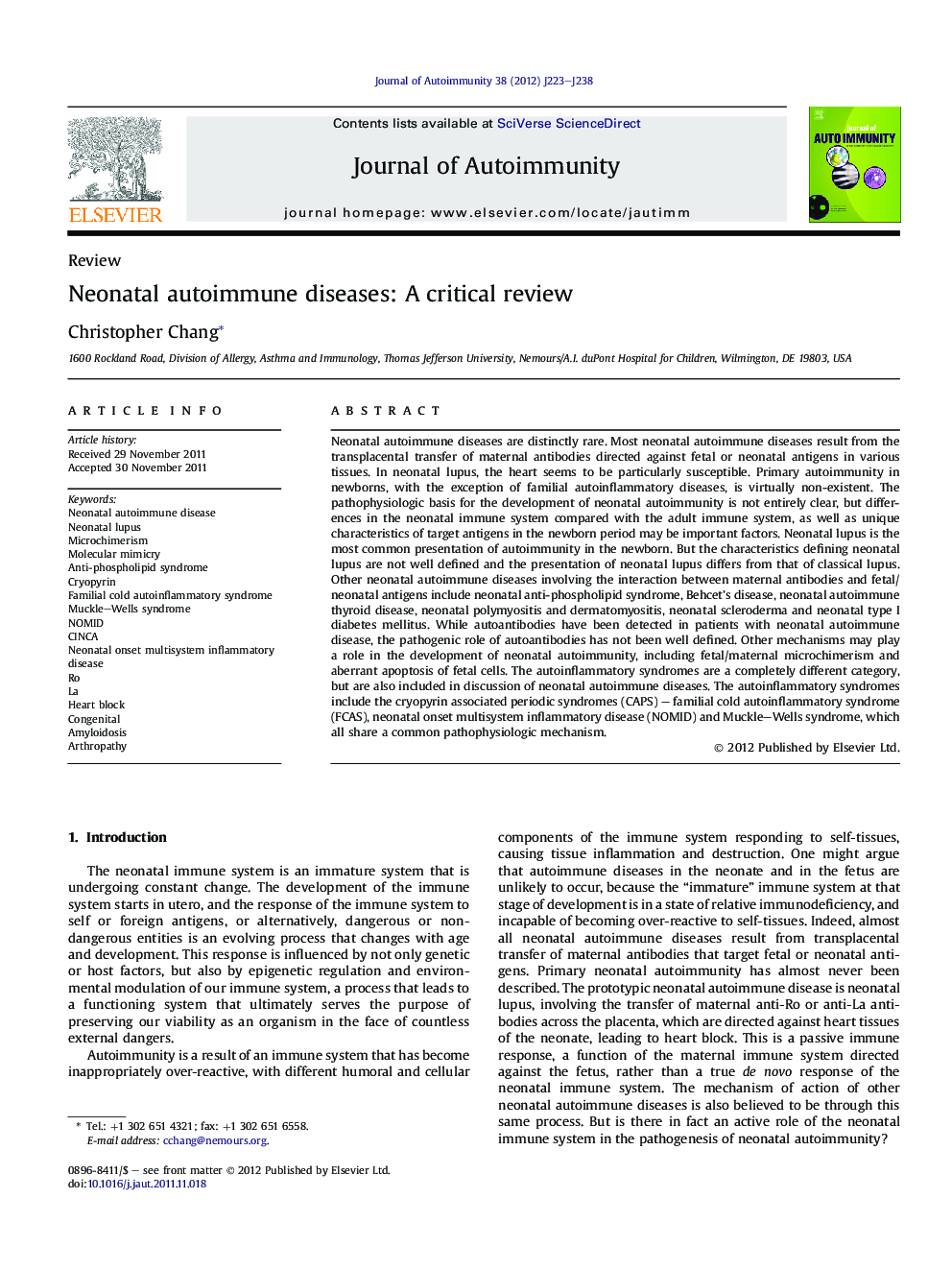| Article ID | Journal | Published Year | Pages | File Type |
|---|---|---|---|---|
| 6119409 | Journal of Autoimmunity | 2012 | 16 Pages |
Abstract
Neonatal autoimmune diseases are distinctly rare. Most neonatal autoimmune diseases result from the transplacental transfer of maternal antibodies directed against fetal or neonatal antigens in various tissues. In neonatal lupus, the heart seems to be particularly susceptible. Primary autoimmunity in newborns, with the exception of familial autoinflammatory diseases, is virtually non-existent. The pathophysiologic basis for the development of neonatal autoimmunity is not entirely clear, but differences in the neonatal immune system compared with the adult immune system, as well as unique characteristics of target antigens in the newborn period may be important factors. Neonatal lupus is the most common presentation of autoimmunity in the newborn. But the characteristics defining neonatal lupus are not well defined and the presentation of neonatal lupus differs from that of classical lupus. Other neonatal autoimmune diseases involving the interaction between maternal antibodies and fetal/neonatal antigens include neonatal anti-phospholipid syndrome, Behcet's disease, neonatal autoimmune thyroid disease, neonatal polymyositis and dermatomyositis, neonatal scleroderma and neonatal type I diabetes mellitus. While autoantibodies have been detected in patients with neonatal autoimmune disease, the pathogenic role of autoantibodies has not been well defined. Other mechanisms may play a role in the development of neonatal autoimmunity, including fetal/maternal microchimerism and aberrant apoptosis of fetal cells. The autoinflammatory syndromes are a completely different category, but are also included in discussion of neonatal autoimmune diseases. The autoinflammatory syndromes include the cryopyrin associated periodic syndromes (CAPS) - familial cold autoinflammatory syndrome (FCAS), neonatal onset multisystem inflammatory disease (NOMID) and Muckle-Wells syndrome, which all share a common pathophysiologic mechanism.
Keywords
Related Topics
Life Sciences
Immunology and Microbiology
Immunology
Authors
Christopher Chang,
